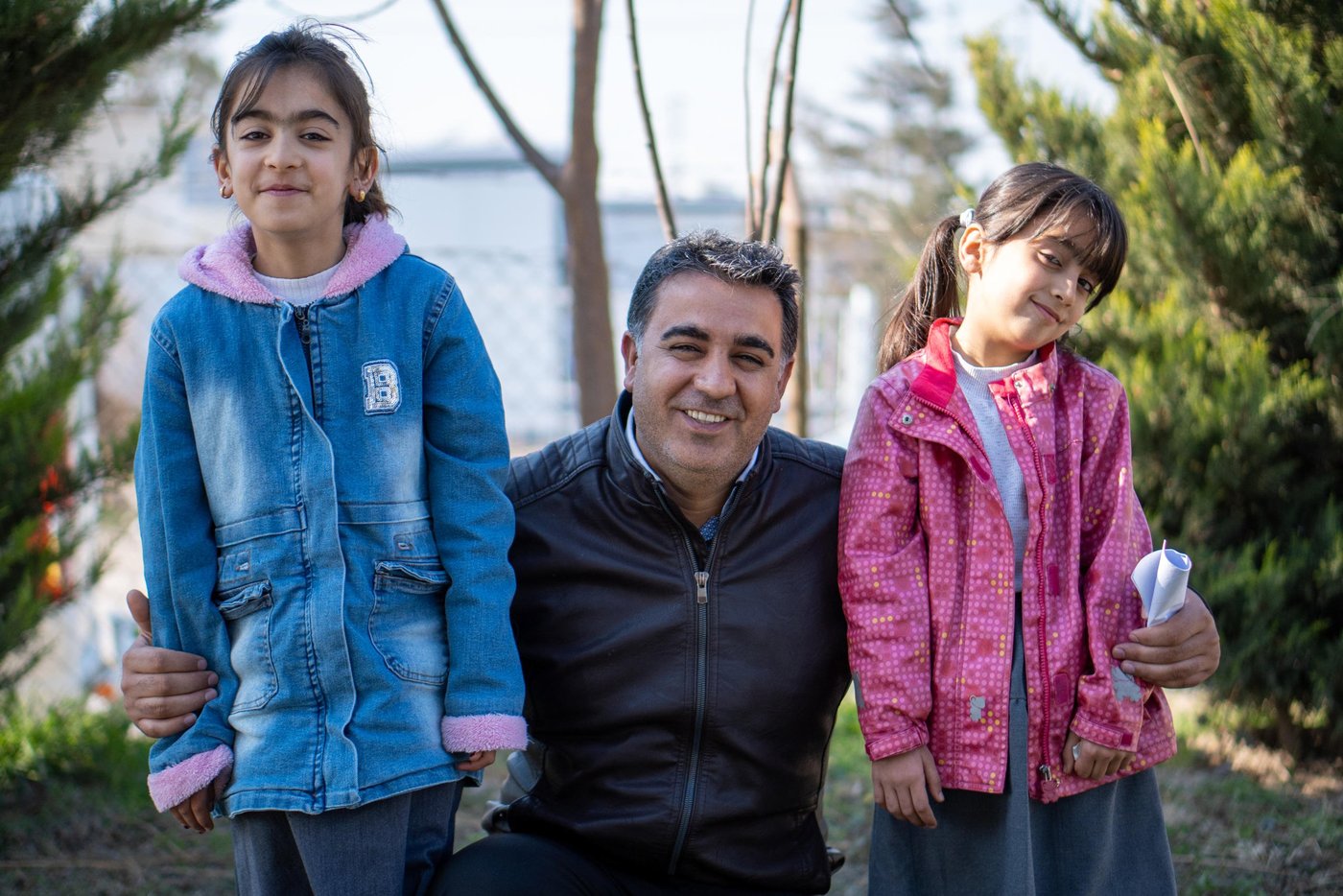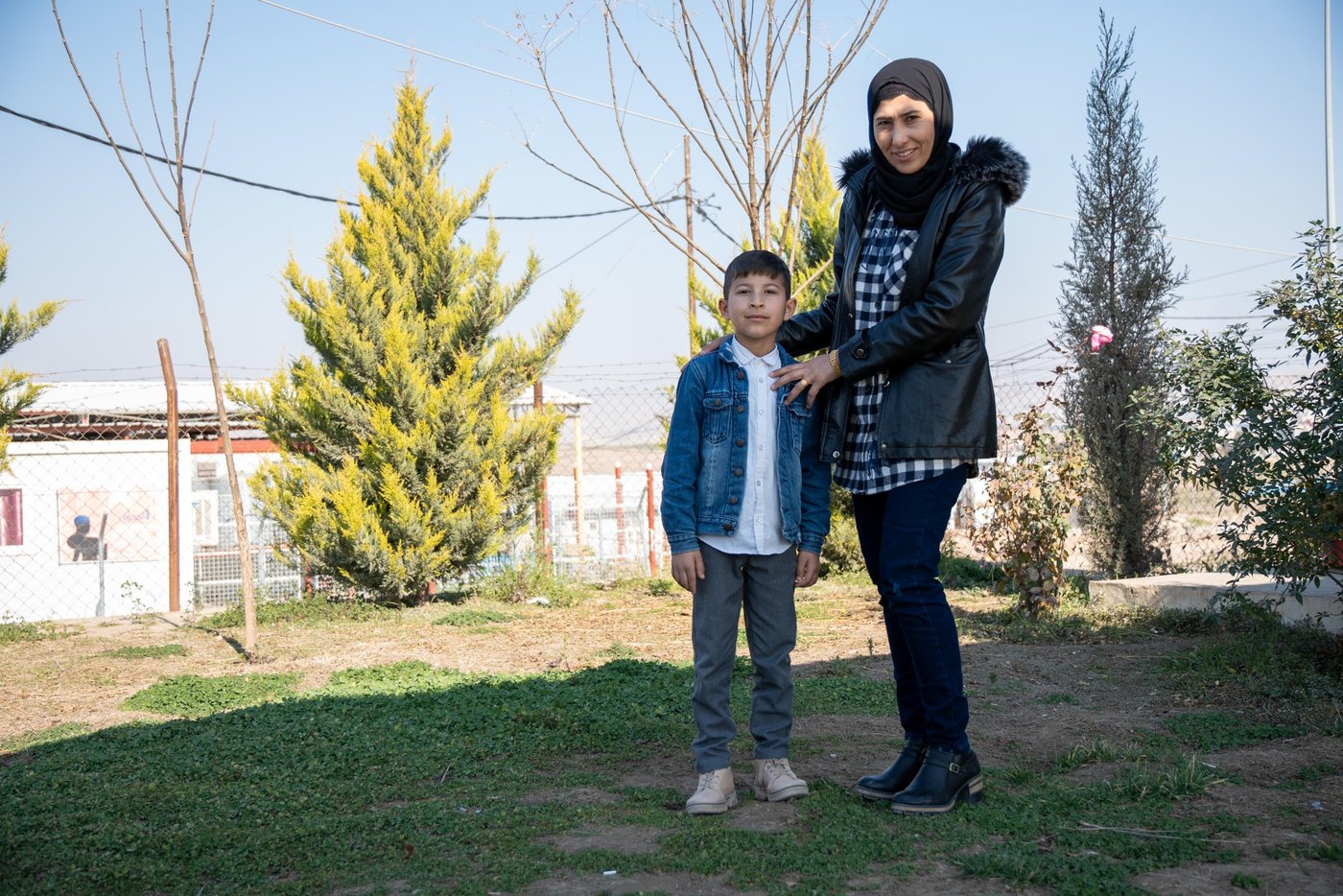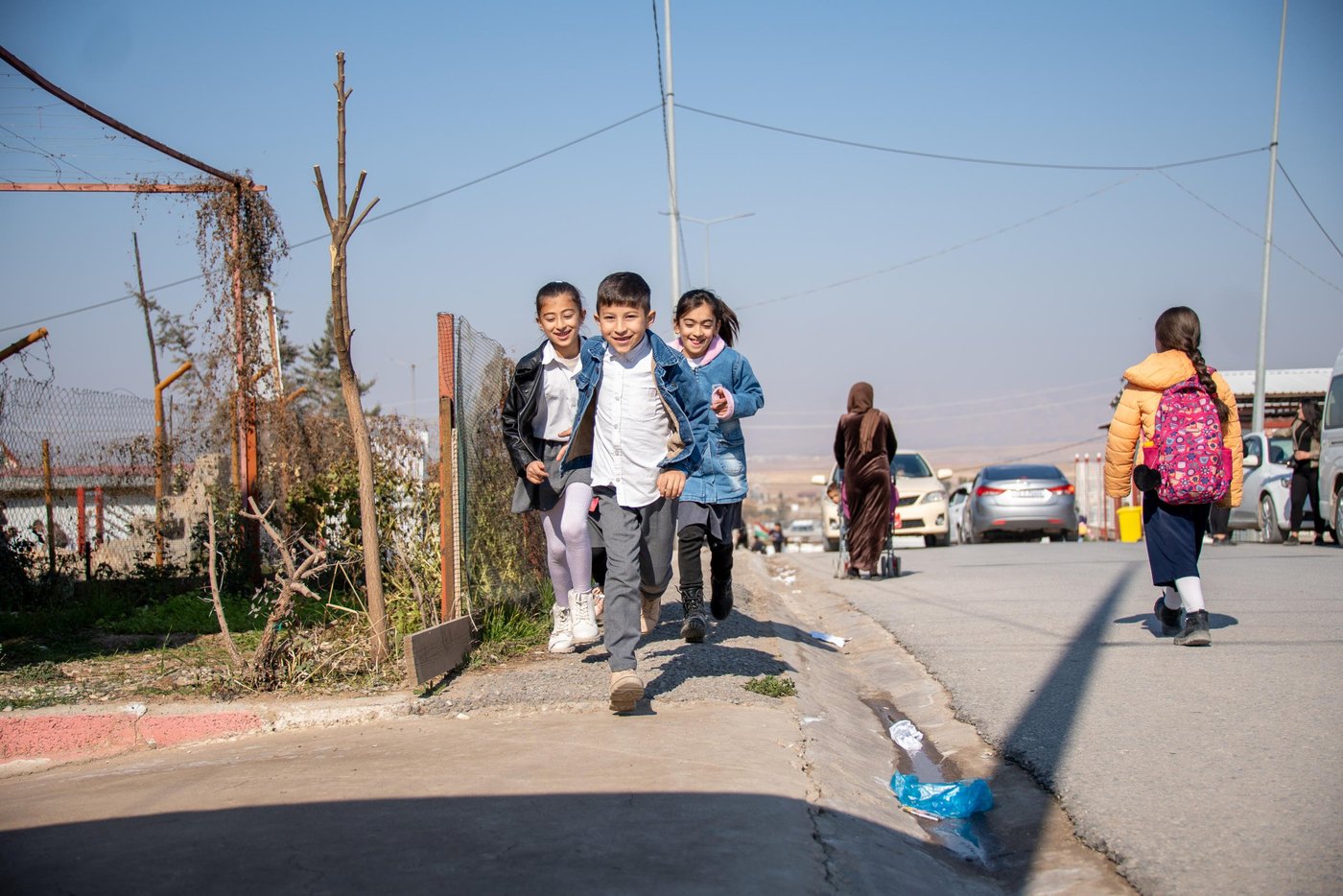In the heart of Domiz camp, a vibrant community of Syrian refugees, the warm winter sun illuminates the dusty streets. Groups of children roam lively streets, some returning from morning school, others just starting their day.
As we observe the students making their way through Afrin primary school in the camp, it's important to recognise that many of them have undergone a pivotal transition. This transition has played a critical role in determining the language in which they will continue their educational journey.
In 2022, NRC was a partner in the rolling out of the Refugee Education Integration Policy in the Kurdistan Region of Iraq. The aim of this policy is to include refugees and asylum seekers into Kurdish society by providing them with the same educational opportunities as Kurdish children. Access to quality education is crucial for self-reliance and to pursue further education and employment.
Joury and Mahmoud are two students at NRC centre in Domiz.
Like their fellow students across the Kurdistan Region of Iraq schools, they have been embraced by the transformative Refugee Education Integration Policy (REIP). Launched in 2022 by the Kurdistan Region of Iraq (KRI) government and rolled out in coordination with the Ministry and Directorate of Education, this groundbreaking initiative is supported by NRC, UN agencies, and education partners alike. The policy formalises inclusion through education for Syrian refugees in KRI, to increase resilience of refugees and improve opportunities for social cohesion between refugees and Kurdish host communities. In practice, the policy meant a shift in how children are taught- switching from Arabic to Kurdish in the classroom.
Joury, 9, found the transition particularly difficult at first. Joury’s father, Bashar Salih admits he was initially sceptical. "In the beginning, we were all worried about our children and whether this transition is going to affect their performance, but all teachers ensured that they would do their best to make children feel comfortable, because as we all know, change is not easy.”

oury said “I studied in Arabic until Grade 2. I am now in Grade 3 and learning in Kurdish. I found it a bit difficult at first, since I was used to learning in Arabic, but our teachers were very helpful, and they would repeat the lesson if we didn’t understand it. I felt like I could always ask for help from NRC to catch up if I fell behind. I like going to school now. I look forward to it.”
Supported by Norway, Sweden, the United States funded Education Consortium of Iraq (ECI), and Education Cannot Wait (ECW), NRC’s education programmes provide remedial classes, Kurdish classes, Basic Literacy and Numeracy (BLN) and Better Learning Programme (BLP) in Domiz.
Mahmoud, 7, has a passion for playing football with his friends. He too faced some challenges in his transition to Grade 2. As a Grade 1 student, he had been accustomed to studying in Arabic, but now found himself transitioning to Kurdish language classes - just like his peers from the Kurdish host communities in the Kurdistan Region of Iraq (KRI). Despite the initial difficulties, Mahmoud was determined to adapt and thrive in his new academic environment.
“It wasn’t easy when we first transitioned and started studying in Kurdish,” he said. My parents helped me a lot, as well as my teachers who still help us if we needed any support from them at school.”

Dedicated teachers at Afrin school played a pivotal role in supporting their students as they navigated the challenges of the transition. Among these educators was Halat, known as "Amazing" by many of her students. Halat went above and beyond to ease the fears and concerns of her students, inspiring them to push through any difficulties and realise their full potential.
"Two months before the start of the 2022-2023 academic year, we made sure to keep all parents fully informed about the upcoming transition," explained Halat. "We sensed that many parents were understandably anxious about how this change would impact their children's performance at school. That's why we made a concerted effort to support not only our students, but their families as well."

To this end, Halat took steps to empower parents and help them better assist their children with their studies. She created a dedicated WhatsApp group, where she shared useful Kurdish words and terms that could prove invaluable when helping children with their homework - particularly with challenging subjects such as mathematics. Through these efforts, Halat succeeded in fostering a sense of collaboration and support between teachers, parents, and students alike.
NRC works with the Kurdistan Regional Government to make the transition to formal education successful— through back-to-school campaigns, teacher trainings, school rehabilitation, distance learning, and closer coordination between students, teachers, parents and the Directorate of Education. The change is already visible: students report enjoying classes and feeling supported as they navigate the transition.


